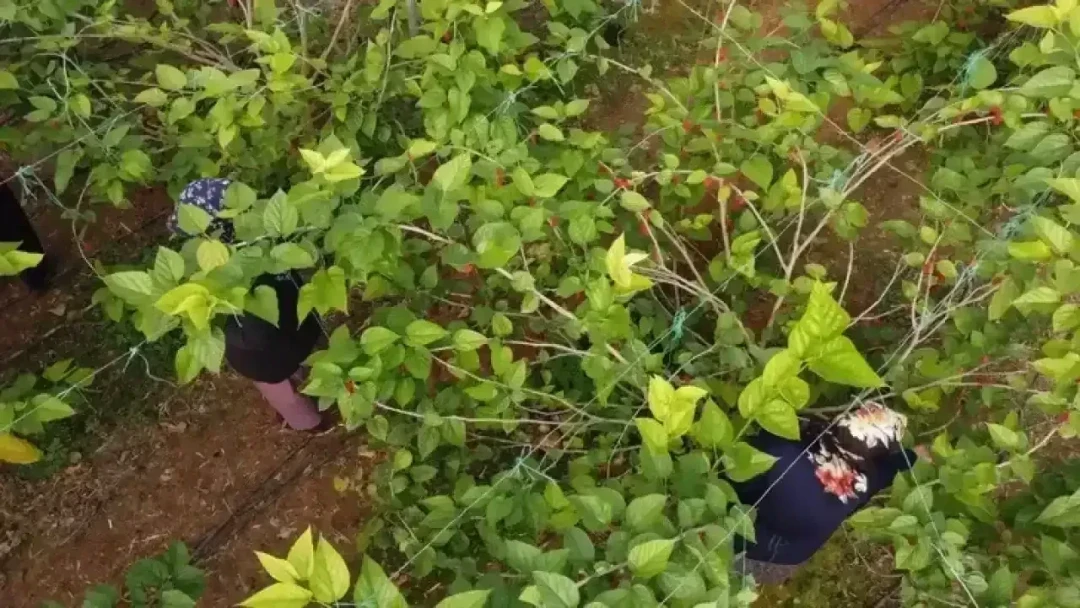They stopped growing tomatoes and cucumbers and started planting this: Already exporting to 4 countries

Greenhouse producers have abandoned labor-intensive and low-profit crops like tomatoes and cucumbers in favor of a fruit that is very popular and well-known in Turkey. Thanks to this change, yields can reach up to 4 tons per hectare.
FARMERS IN MERSIN SWITCH TO BLACK MULBERRIES
Farmers in Mersin, who could not earn enough income from growing vegetables like tomatoes, cucumbers, and peppers, have adopted a new strategy.
The early harvest of black mulberries, which are grown in greenhouses in Mersin and bring good profits to producers, is ongoing. This fruit is in demand both domestically and abroad, selling for 80 TL per kilogram. A producer, Aysel Kara, explained:
"We used to grow tomatoes, but they are more expensive to cultivate and require more labor. Black mulberries are easier to grow and cost less."
CITRUS SEASON COMES TO AN END
Mersin, which plays a significant role in Turkey’s fresh fruit and vegetable production, is also drawing attention with its early harvest crops. As the citrus season nears its end, greenhouse products in the region have started to be harvested.
BLACK MULBERRIES ARE IN DEMAND
Previously, greenhouses in the region were used to grow plums, apricots, and grapes. However, in recent years, black mulberry greenhouses have been established due to increasing demand from both domestic and international markets.
Over the past 4-5 years, black mulberries have become a preferred crop among farmers because they yield 3-4 tons per hectare and sell for 80 TL per kilogram. Since they do not require pesticides, production costs are low, making them an easy crop to cultivate. Harvesting in the greenhouses of Erdemli has already begun and is expected to continue until the end of May.
TOMATOES LOSE POPULARITY DUE TO HIGH COSTS
Emine Yaman Kulu, an agricultural engineer who now grows black mulberries in a former tomato greenhouse, explains:
"Due to the high costs of tomato production, we started looking for alternatives. That’s how we discovered black mulberries. We planted 60 seedlings per hectare. Now, our trees are two years old, and the harvest will continue until the end of May."
HIGH YIELDS – UP TO 4 TONS PER HECTARE
Kulu adds:
"The cultivation process is easy for both farmers and harvest workers. Since there are no pests, there is no need for pesticides. The only requirement is proper irrigation, as the plant loves water. Currently, we expect 2.5 tons per hectare, but in the coming years, this could increase to 4 tons. The price per kilogram is currently 80 TL."
SURGE IN DEMAND FOR BLACK MULBERRIES
Kulu highlights the growing demand:
"We supply major cities like Antalya, Istanbul, and Izmir. Additionally, black mulberries are popular in Arab countries, and we export them to Dubai, Iraq, and Russia."
MORE PROFITABLE THAN TOMATOES
Producer Aysel Kara states:
"We used to grow tomatoes, but they required more investment and were harder to maintain. Black mulberries are easier to grow and have lower costs while bringing in more profit."
She adds:
"With tomatoes, you work all year round, while with black mulberries, you only need to work for 2-3 months during harvest and pruning. It’s a profitable fruit used in many ways – for making syrup, jam, juice, and in pastries."


